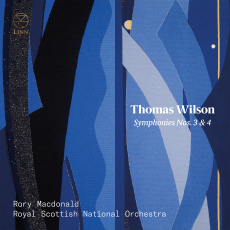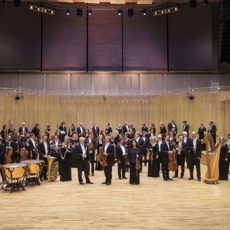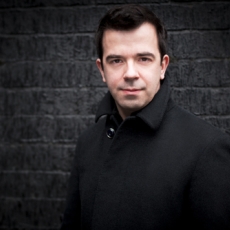Rory Macdonald & RSNO - Thomas Wilson: Symphonies Nos. 3 & 4 - Fanfare
Thomas Wilson (1927–2001) won many awards for his work, and was the leading Scottish composer of the generation before James MacMillan. I’d never heard a note of his music, so was intrigued to receive this new release of two single-movement symphonies and an orchestral work: Symphony No. 3 (1979); No. 4, “Passeleth Tapestry” (1988); and Carillon (1990). The Linn label is renowned for its sound quality, and the Royal Scottish National Orchestra is also a known quantity for its high standards. This disc does not disappoint in either respect. The sound is rich, full and present, while the orchestral performances under Rory Macdonald are dramatically charged, colourful, and assured. (It is worth noting that earlier in his career Macdonald was an assistant to David Zinman, Iván Fischer, and Antonio Pappano. It shows.)
In all three works Wilson’s music has a cinematic quality––not only in the expansive orchestration, which includes important roles for piano and tuned percussion, but also in his easily recognisable three- or four-note melodic motifs. These are used throughout each piece as a thematic and harmonic basis for the many changes of mood. Wilson’s harmony is tonal but without a clear key centre, which allows him to create tension. In quiet sections, he often achieves a feeling of foreboding, sometimes a malevolent playfulness, and each of these pieces builds to a tense climax at some point. If this music did underscore a movie, it would be in black and white with plenty of shadows. Wilson’s accomplished, evocative writing makes a vivid impression on first hearing, and having now lived with this disc for a while I am finding more beneath the dazzling surface with each playing. The Third Symphony in particular has more to say, but both the Fourth Symphony (a depiction of the town of Paisley, beginning with a compellingly orchestrated carillon motif), and the piece actually titled Carillon (dedicated to the opening of a new concert hall in Glasgow) are strong and musically substantial. Carillon, of necessity, has its moments of grandeur, but at times Wilson pares the texture back to an almost Stravinskian sparseness. It is a winning disc in every way.


